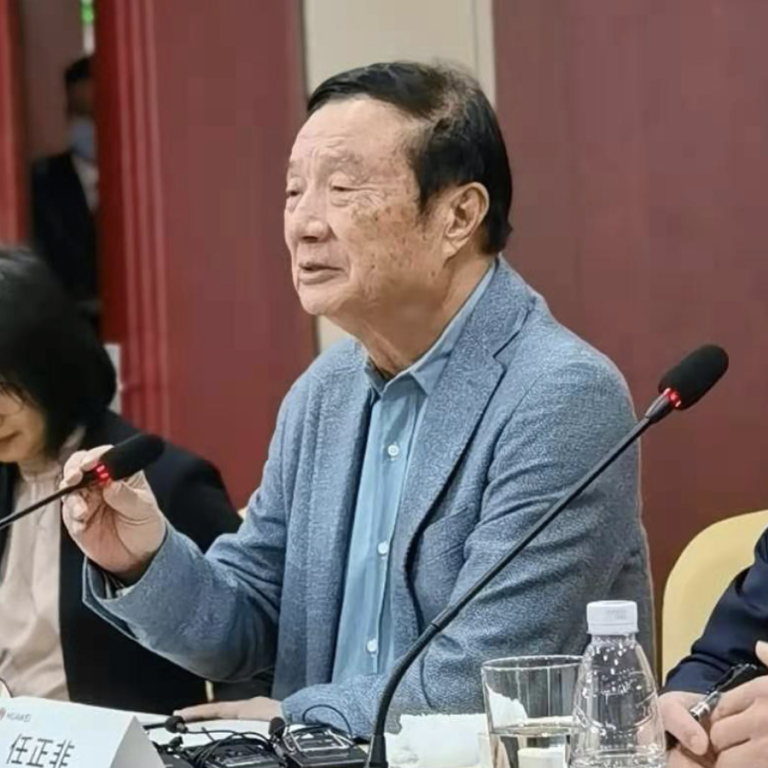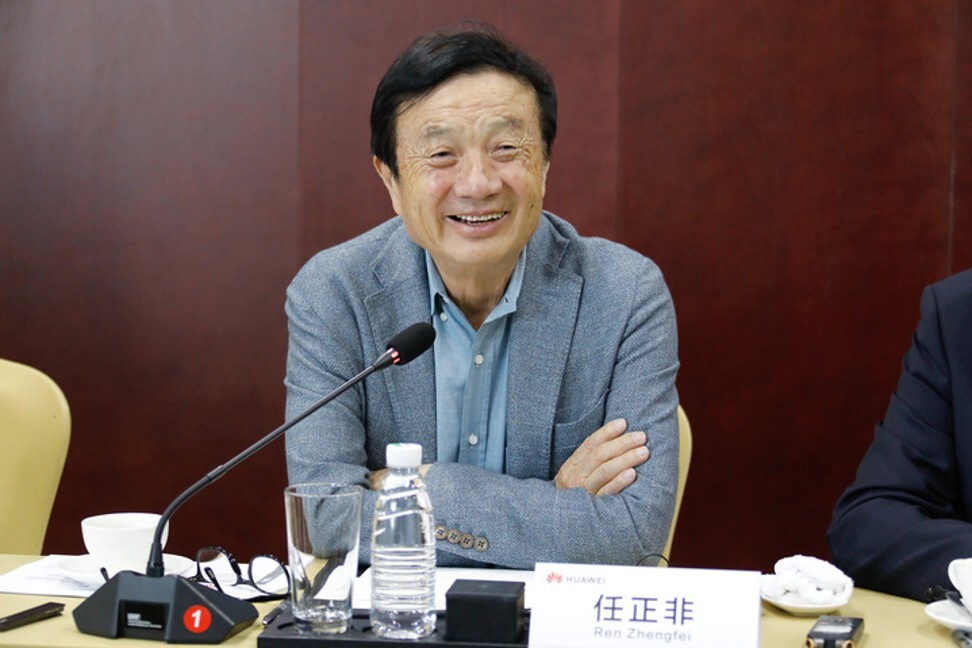
Huawei’s Ren Zhengfei calls for more open US policy towards China under Biden
- The Huawei founder and CEO speaks out on the US-China tech war for the first time since US President Joe Biden took office
- The comments come as the Chinese telecoms giant explores new business areas such as cloud services and smart cars to weather the storm
Huawei Technologies is urging the administration of US President Joe Biden to establish a more open policy towards Chinese companies, said founder and chief executive Ren Zhengfei at a roundtable meeting on Tuesday with select media in Taiyuan, capital of the northern Chinese coal hub of Shanxi, on Tuesday.
“Our company does not have the energy to be involved in this political whirlpool. We strive to make good products,” he said. “We hope that the US government can have a more open policy for the benefit of American companies and the development of the US economy.”
Ren questioned whether Washington’s sanctions against Huawei benefit US interests, indicating that Britain’s pressure over its American colony in the 18th century spurred the rise of the United States.
“Will the US blockade today lead to unexpected consequences?” he asked.

Under the Trump administration, Huawei was slapped with US restrictions that blocked its access to tech hardware, software and services of US origin. Some US lawmakers have urged the Biden administration to retain these sanctions against Huawei. Last week, Biden’s nominee for Commerce Secretary, Gina Raimondo, said she saw “no reason” why the Chinese company and its peers should not remain on the US entity list.
Ren said he thinks it would be “extremely difficult to remove Huawei from the entity list.”
“I will not say it is impossible, but it is extremely difficult, so basically, we do not have that expectation,” he said. “We just want to work hard, and we have plenty of money and can hire a lot of scientists.”
“We have said before that our 5G technology can be transferred in its entirety. That includes not only the rights to development but also source programs and source codes. If the US needs our chip technology, we can transfer it. Our words are sincere [but] no company has come to negotiate with us so far,” he said.
Still, Ren said Huawei “will never sell its [entire] consumer business,” which includes smartphones.
Huawei’s sale of premium smartphone brands would be ‘a last resort’
Ren said the deployment of 5G in China and other markets around the world helps underscore the value Huawei brings to the telecoms industry.
“My confidence grows in Huawei’s ability to survive ... We have great confidence in our customers,” he CEO said, adding that his company’s 5G offerings have an edge in both industrial applications, such as in coal mines and seaports, as well as in consumer products, such as tablets and smart televisions.
Ren also praised Huawei’s smartphone rival Apple, calling the iPhone 12 “the world’s best smartphone.”
“High-end customers in Europe love Apple,” he said. “Since [Huawei] doesn’t have premium handsets any more, Apple’s phones have helped us prove that Huawei’s 5G technology is the best.”
Apple fan (and Huawei CEO) Ren Zhengfei pictured with an iPad
Despite Ren’s show of confidence, Huawei has embarked on a range of initiatives in a bid to reinvent its hampered business.
“We think our new business development can offset the decrease in revenue in our smartphone business this year,” said Ren.
Apart from the US sanctions issue, Huawei’s chief financial officer Meng Wanzhou is still in Canada fighting a prolonged US extradition request. The eldest daughter of Ren, Meng has been held in Vancouver since December 1, 2018, when she was arrested at the city’s airport by Canadian police acting on a US warrant. She is wanted in the US on fraud charges, which she denies.
“The case of Meng Wanzhou is a political manoeuvre operated by the US. There are some issues with how Canada implements that,” said Ren. “We still believe in Canada’s legal procedures.”

For now, retirement does not seem to be on Ren’s mind.
“It’s not a question of when I should retire but what I can do after retirement,” he said. “My wife said I can drink tea in the morning [but] I also drink tea in the afternoon, so I won’t be able to sleep at night. I don’t have a lot of interests and hobbies.”
Huawei’s revenue in 2020 reached a record US$136.7 billion, reported Chinese business news outlet Yicai on Monday, citing unaudited internal figures. While the telecoms giant’s annual profit rose more than 10 per cent to US$9.9 billion, its year-on-year growth rate dropped to around 11 per cent.
This marks the second straight year that Huawei’s revenue growth has slowed. Its annual growth rates in 2018 and 2019 were 19.5 per cent and 19.1 per cent.
Huawei declined to comment on the reported figures and said it will release official annual numbers in March.
Additional reporting by Masha Borak

